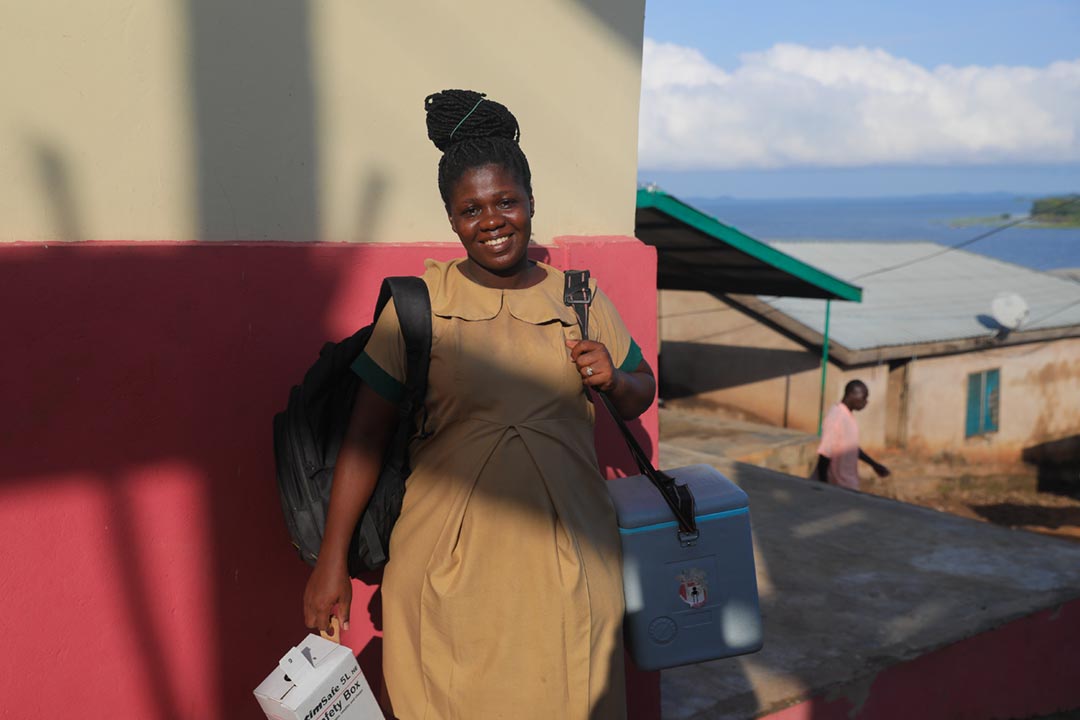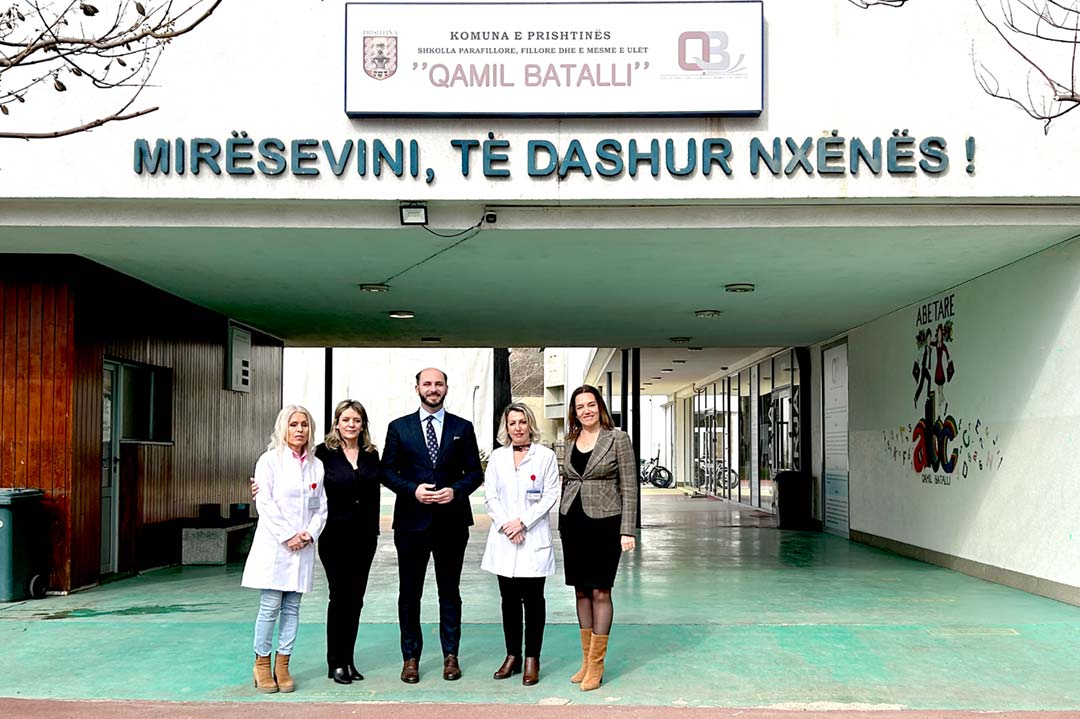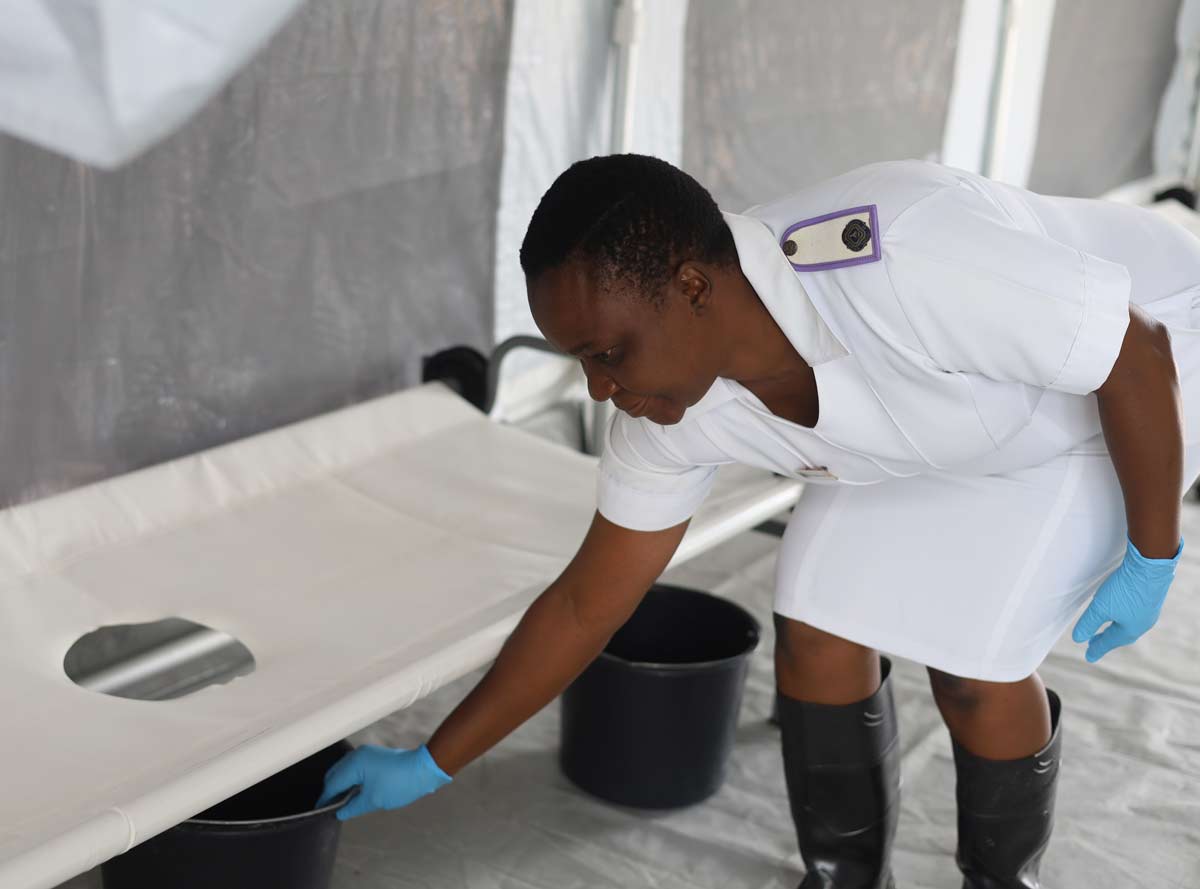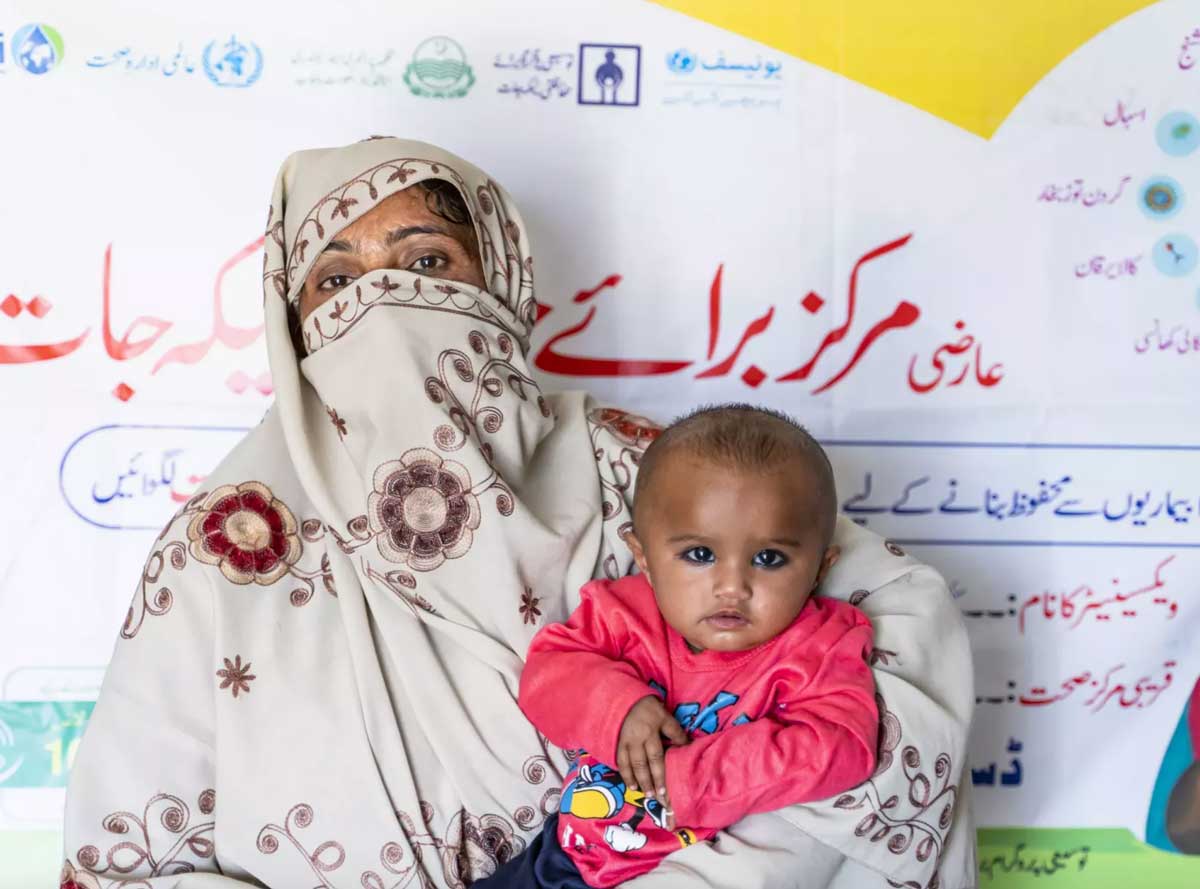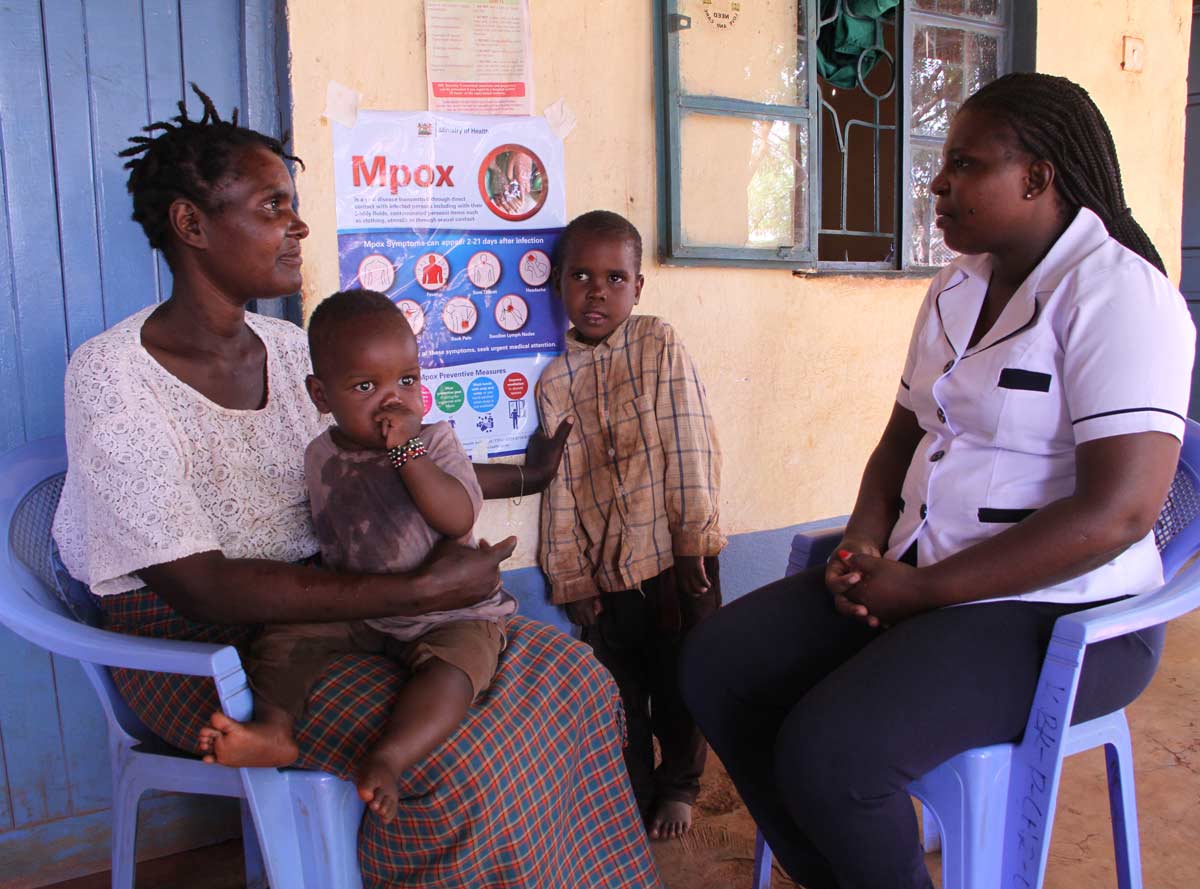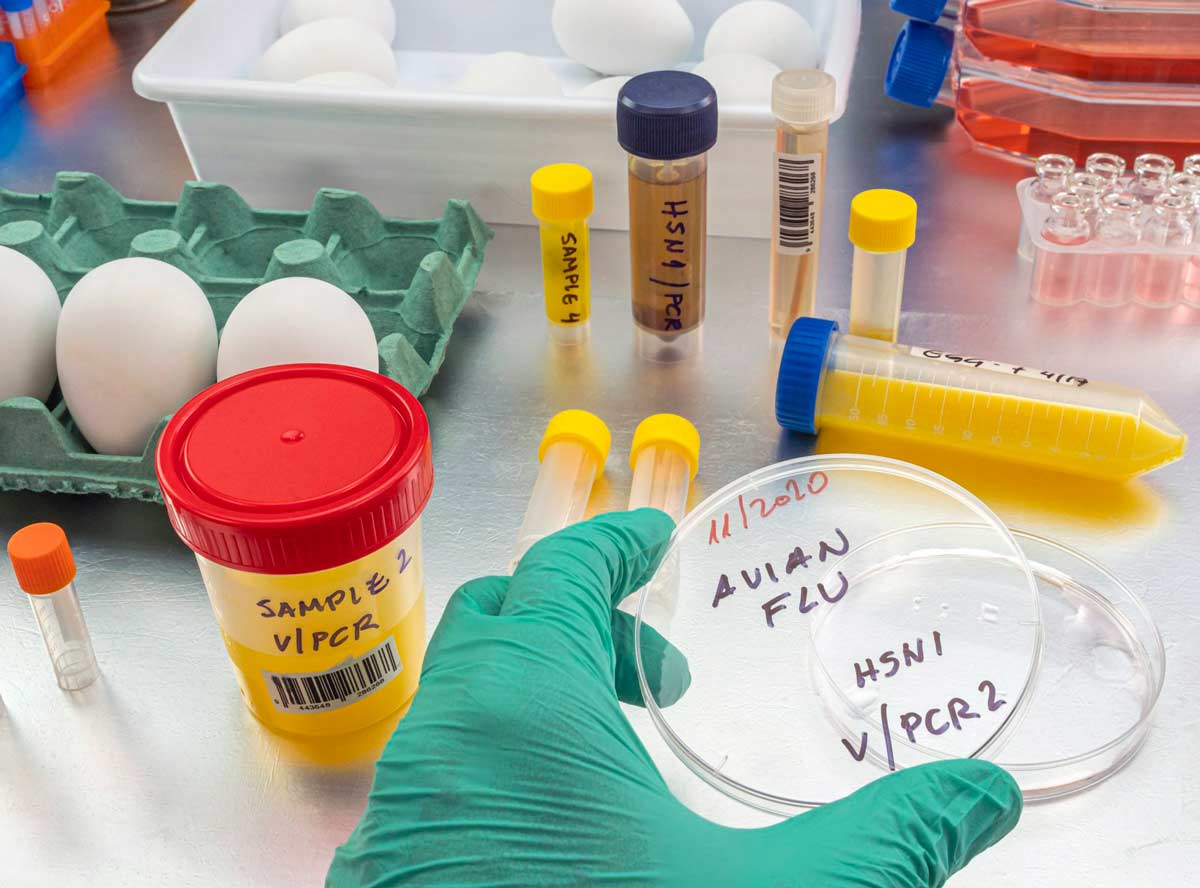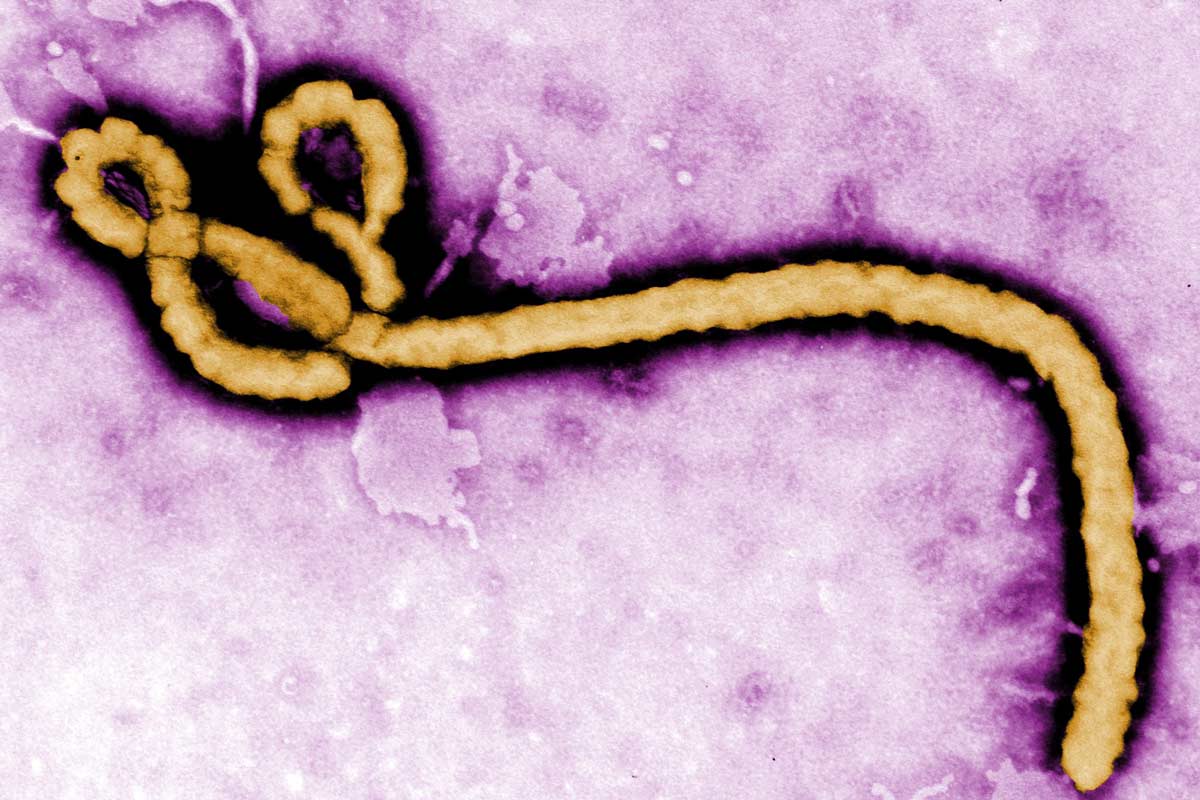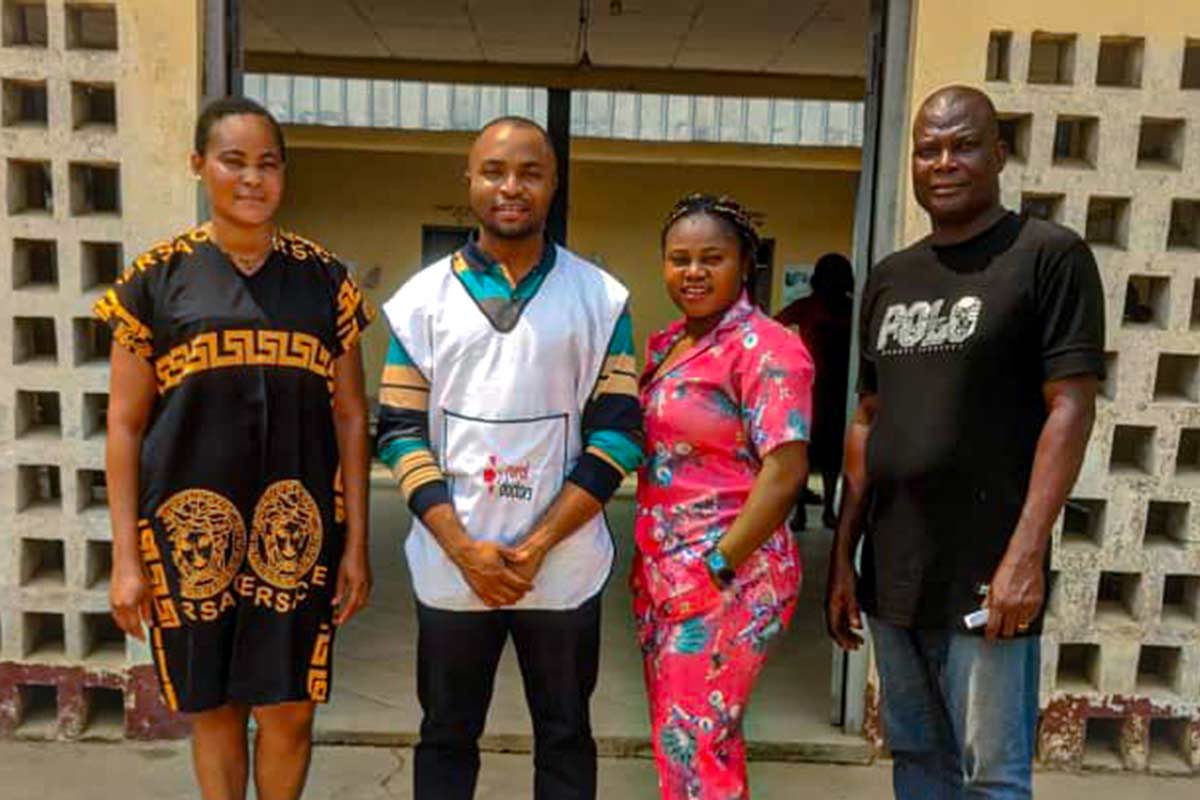Three key Davos takeaways: in an uncertain world, investing in health can provide certain returns
From climate change to the unchartered terrain of artificial intelligence, leaders at this year’s World Economic Forum Annual Meeting looked through the lens of health to navigate the greatest challenges of our time.
- 19 January 2024
- 6 min read
- by Kelly Warden

Global health leaders and innovators are navigating a world undergoing rapid societal, geopolitical, economic and technological changes. And, as the conversations coming out of this year's World Economic Forum Annual Meeting in Davos show, forging a healthier future for the generations to come means accelerating the way we adapt to these trends.
Here are three key takeaways from this year's Forum.
1. The climate crisis is already affecting health, and we will need vaccines more than ever
The climate crisis is a health crisis. On the ground at Davos, leaders confronted the inevitable truth that climate change is perhaps the greatest threat to their economies and the lives of the people they serve, as a new WEF report estimated the climate crisis could cause an additional 14.5 million deaths and US$ 12.5 trillion in economic losses by 2050.
As the report and discussions at Davos make clear, rapid adaptation is now required to avert these future deaths, and investments in vaccines against climate-sensitive diseases such as malaria, cholera, and yellow fever are a tangible and cost-effective way to build resilience and mitigate some of the risks stemming from climate change. Gavi is already adapting the way the Alliance assesses which vaccines to support in the future by taking account of the impact of candidate vaccines on climate change risks and mitigation.
But while the intimate link between climate and health is increasingly acknowledged, health protection accounts for a vanishingly small proportion of climate funding.
"Only a half a percent of the multi-lateral climate funding is allocated towards protection and improvement of human health," said Wellcome Trust Chief Research Programmes Officer, Cheryl Moore, during a panel discussion exploring how climate change is impacting human health.
"This is an incredibly alarming statistic, given about a quarter of the global burden of disease is linked to environmental risk factors that could be predicted and adapted to, to protect the health of our populations.
"Poor health caused by climate change is also undermining productivity and putting a costly load on our health systems," she said.
2. Solutions to complex threats require collaborative innovation
The World Economic Forum is often dismissed as an expensive talking shop, but it is hard to deny that Davos helps to break down the traditional divides between industries, countries, and the private and public sector, helping to seed the ground for new collaborations. Gavi itself is testament to the way that new partnerships and a spirit of multilateralism can help to cultivate equitable and innovative solutions to overcome barriers to immunisation. It was in this spirit of collaboration and innovation that the Alliance used the Forum to open applications for the 2024 round of Innovation for Uptake, Scale and Equity in Immunisation (INFUSE) – Gavi's innovation incubator.
INFUSE 2024 will focus on innovations that aim to develop low-carbon and sustainable health care systems, and that enhance the skills and resilience of the health workforce.
Projects will be selected by a panel of expert reviewers, with an emphasis on innovations with the potential of being taken to scale in Gavi-supported countries. New projects will be following in the footsteps of the Zipline drone delivery service, which has already helped deliver more than 14 million vaccines to some of the most remote communities in countries across Africa.
Discussions around technology, and artificial intelligence (AI) in particular, dominated discussions at Davos, and there is no doubt that AI has the potential to revolutionise aspects of vaccine development. Google/DeepMind's AlphaFold programme, which uses AI to build sophisticated models of protein structures, is just one example of how AI-powered tools can inform and accelerate vaccine development. However, others caution that discussions around AI should not distract from more pressing issues around health inequities.
Have you read?
"There are going to be excellent uses for AI, but it's not going to be the fix for everything," said Mayo Clinic CEO Gianrico Farrugia.
"There is so much good that has happened in health care, but still there are so many other issues that need to be fixed – disparities, inequalities, access – you need to fix the underlying architecture of health care before we can apply AI to it."
Echoing Dr Farrugia, DataKind CEO Lauren Woodman joined numerous AI-related panels, including at Gavi's event on public-private sector innovation, pointing to inequities in data collection as a core issue that must be addressed.
If we don't take proactive steps to counteract historical inequalities in data collection and interpretation, "we will squander the chance to fully realise the benefits of technological progress for all," she writes in an article for WEF, co-written by Data and AI Mastercard Fellow, JoAnn Stonier.
The AI conversation slotted in nicely to this year's World Economic Forum theme of "Rebuilding Trust," which will be a pre-requisite if populations are to embrace this new technology.
"If citizens don't trust their government on things other than emerging technologies, then it's probably going to be even more difficult when it comes to how their data is being treated and who owns it," says Rwanda's Minister of Information Communication Technology and Innovation, Paula Ingabire.
"It comes back to: what is the social contract that governments have with their citizens? Can they trust what you say?"
3. In a tightening fiscal space, leaders are looking to the health sector for return on investment
As turbulence hits the global economy and national budgets are increasingly feeling the squeeze, populations and policy-makers are increasingly focused on value for money amid a tightening fiscal landscape.
Belgium is a world leader in the pharmaceuticals industry, and although Belgium represents only 2.6% of the EU population, its biopharmaceutical industry accounts for 7.8% of jobs, 18.7% of exports and 19.3% of research and development investment in the EU.
As Belgium takes up the rotating presidency of the Council of the European Union, it was no surprise that Belgium Prime Minister Alexander de Croo used his country's platform at the World Economic Forum to highlight the socio-economic returns that could accrue from strengthening the EU's health sector.
However, to ensure global health security we cannot rely solely on investments from the public sector, particularly in the current fiscal climate. We need the private sector to support innovative capital models that drive investment to places like Africa to generate social and financial returns. Gavi's success stems from its unique public-private partnership, which has weathered global crises from the financial crash to the pandemic.
In an uncertain world, investing in health provides certain returns. A study covering 73 Gavi-supported countries shows that, for every US$ 1 spent on immunisation in the 2021–2030 period, US$ 21 is saved in health care costs, lost wages and lost productivity due to illness and death. When considering the value people place on lives saved by vaccines – which is likely to include the value of costs averted plus the broader societal value of lives saved and people living longer and healthier lives – the return on investment is estimated to be US$ 54 per US$ 1 spent.
It's no wonder vaccines are touted as one of the "best buys" in global public health, and this sentiment was echoed this week by the UK's former Prime Minister and current Secretary of State for Foreign, Commonwealth and Development Affairs, David Cameron.
Cameron followed up his appearance at World Economic Forum by announcing that the UK would match the first £2 million of new pledges from the private sector to Gavi, the Vaccine Alliance, to support the rollout of the RTS,S and R21 malaria vaccines. "As I said to business leaders at Davos this week, it is one of the easiest investment decisions they could ever make," Cameron said.

